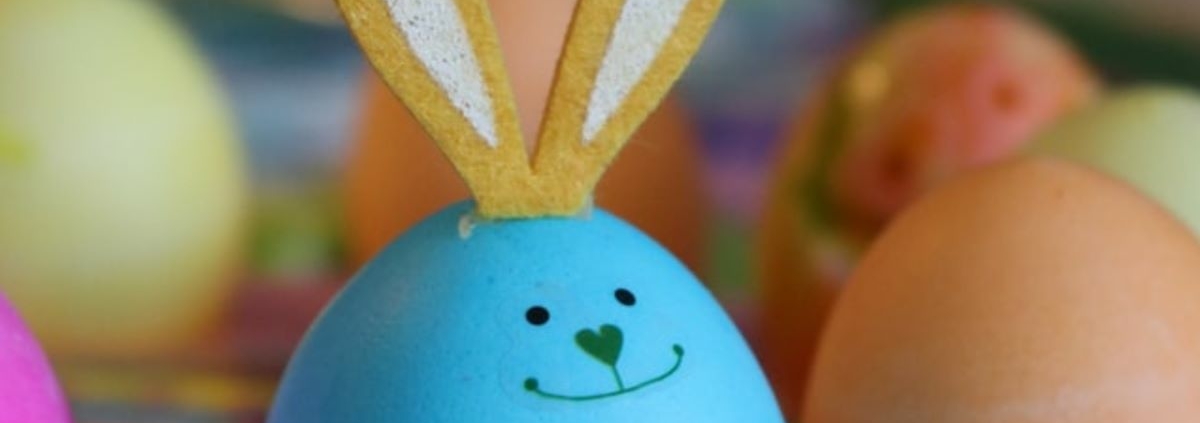Why Does A Bunny Have Eggs?
Have you ever wondered how eggs became part of our Easter tradition? Not only that but why the heck does a magic bunny hide those eggs?? What came first, the bunny or the egg?
The Bunny
The exact origins of the mythical hare are unclear. A straightforward explanation could be that rabbits, known to be prolific procreators, are an ancient symbol of fertility and new life. New life is strongly associated with Christianity and Easter, as is new life associated with spring. Therefore a bunny makes symbolic sense. But when did the magic one hop into the picture? And why does it hide eggs?
Some say the root of the egg-laying cottontail came from German origin and was introduced to American folklore by German settlers in the 1700s. The tale of an egg-laying rabbit called “Osterhase” (Ostern-Easter Hase-Hare). German legend has it that an impoverished mother didn’t have the means to buy her children a hearty meal to mark the end of Lent. Instead, she decorated eggs for her children on Easter morning and hid them in the garden for them to find. As the children collected the hidden eggs, they saw a giant rabbit hopping away. The children thought the hare had left the eggs. Hence, Osterhase! As the legend became more well-known, German children began making nests for Osterhase. They would put carrots in the nest in exchange for colorful eggs. The story and custom spread across the U.S. over time, and the nests eventually became decorated baskets. Chocolates and gifts in baskets are American traditions that have turned Easter into the 3rd highest retail spending holiday behind Christmas and Mother’s Day.
The Eggs
Eggs have long been associated with Easter as a symbol of fertility, new life, and rebirth, much like the rabbit. One could see how Christianity would associate eggs with Easter, a holiday that celebrates the resurrection. Ancient Greeks and Egyptians also connected eggs with fertility and power. Some early civilizations gifted eggs to the dead as a symbol of revitalization and protection from evil. And some even say Easter eggs are linked to pagan traditions celebrating spring.
Eggs were prohibited in medieval Catholicism during the religious Lenten fast, along with other foods. So while no one could eat eggs during Lent, no one told the chickens, and they continued to lay them. Folks would hard-boil their chicken eggs and store them to eat later. Because Lent ends in the lead-up to Easter, folks would decorate and paint their hard-boiled eggs to mark the end of the period of penance and fasting. This theory connects with the story of the mother in Germany, a predominantly Catholic country at the time, and it explains why she had beautiful eggs to hide in her garden!
Whatever your traditions may be, and whichever theory hops out at you the most, we can all agree that Easter and spring are a time of renewal, new life, and rebirth. We hope you have a wonderful Easter with family and friends! If you have questions about the Reno real estate market, we are happy to help! Contact the David Morris Group, or give us a call at (775) 828-3292.














